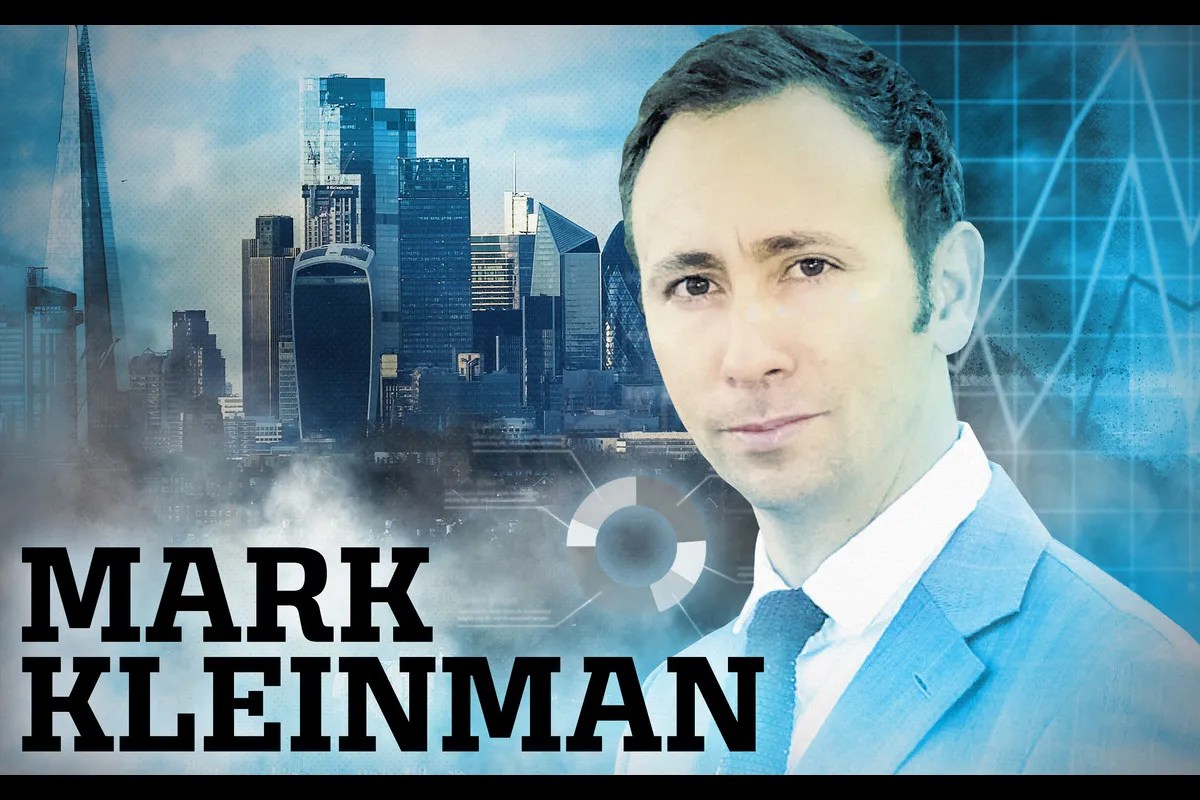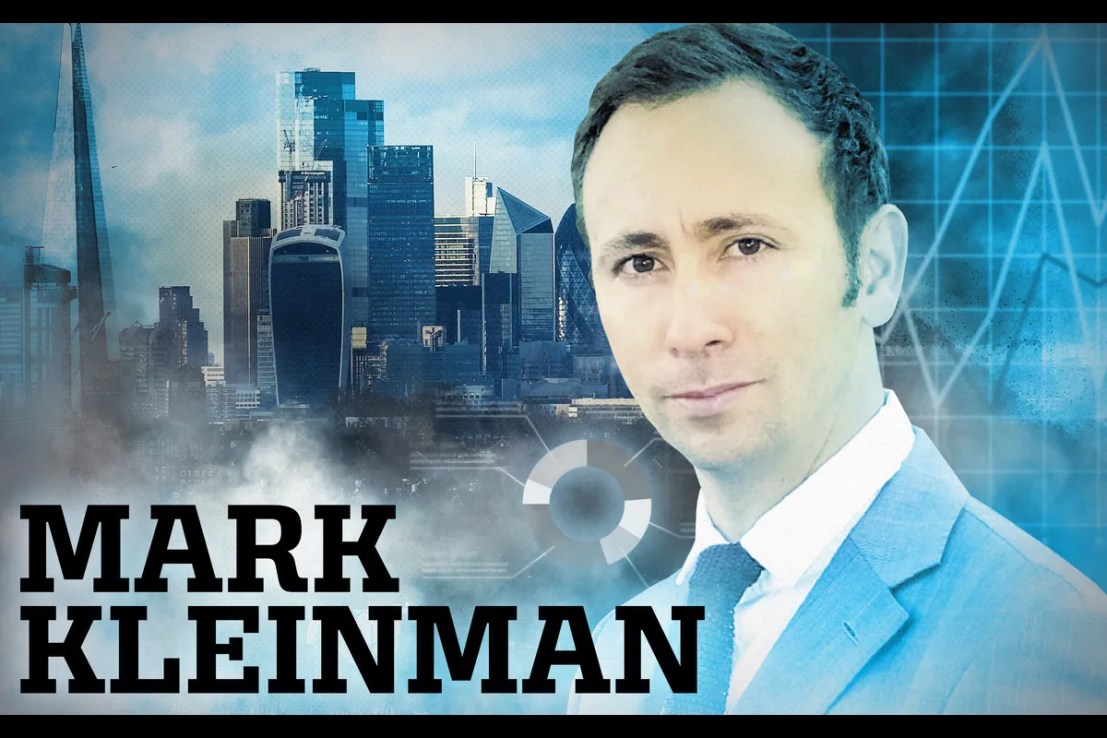Mark Kleinman: Water sector’s goodwill will evaporate under Labour
Mark Kleinman is Sky News’ City Editor and is the man that gets the City talking in his fortnightly City A.M. column. This week he writes about the new government’s plans for water firms, housebuilders and Schroders The moment has arrived. By the time City AM readers set eyes on today’s newspaper, Ofwat, the water [...]


Mark Kleinman is Sky News’ City Editor and is the man that gets the City talking in his fortnightly City A.M. column. This week he writes about the new government’s plans for water firms, housebuilders and Schroders
The moment has arrived.
By the time City AM readers set eyes on today’s newspaper, Ofwat, the water watchdog, will have charted a course towards the survival of Britain’s biggest water supplier – or not.
Thames Water’s stark, but unsurprising, warning on Tuesday was clear: unless it can raise fresh equity in the coming months, its taps will literally run dry next May.
Its annual results painted a clear picture of how capitalism really works. A company which may need to be temporarily nationalised and which cannot currently raise equity funding still felt it necessary to pay £750,000 in annual bonuses to a trip of top executives last year.
Chris Weston, the chief executive, is entitled to an element of danger money; after all, who wants to become known as the private sector troubleshooter who failed to prevent the collapse of one of Britain’s most important utilities?
Being dragged into a row where he was forced to defend his bonus, though, was foolish – Thames should have announced that he was deferring it until the company’s future had been – solvently – guaranteed.
Briefings from the fledgling days of a Labour government have made it clear that it does not view special administration as an attractive prospect. There should be alternative solutions which avoid landing taxpayers with the bill for bailing out the company, Jonathan Reynolds, the business secretary, said during the election campaign.
That does not, though, equate to a licence for leniency for Ofwat – far from it.
For a start, the new environment secretary, Steve Reed, has, as I revealed on Sky News yesterday, summoned the bosses of the 16 water utilities in England and Wales for urgent talks today. It is unlikely to be a meeting memorable for its exchange of pleasantries.
In opposition, Reed was clear that he wanted criminal sanctions for water bosses whose pollution record could not be justified. Industry data makes clear that plenty are at risk. Whether or not Reed goes ahead with his pre-election threat, the industry – and by no means just Thames Water – is in for a torrid few years that will make the Conservative government look positively supine in its approach.
Housebuilding bubble is on the crest of a wave
On the Crest of a wave? There’s no bigger fad at the moment among UK M&A advisers than concocting credible combinations of major housebuilders.
The latest to hit the screens came yesterday when Bellay tabled an improved offer for Crest Nicholson in an effort to scupper a rival approach from Avant Homes.
Labour’s pledge to build 1.5m homes during its first five-year term would, if successfully delivered, offer a powerful re-election platform in 2029. Successive governments have, after all, failed dismally to meet targets for expanding Britain’s housing stock.
The reaction of housebuilders’ share prices to the election result was telling: Crest Nicholson, Bellway, Barratt Developments, Taylor Wimpey and Persimmon all up sharply last Friday.
The boards of housebuilders have clearly decided that this window is right to engage in consolidation. Avant argues that its NAV-to-NAV proposal, which would give Crest Nicholson shareholders 70% of the combined group, remains more attractive despite Bellway’s improved bid.
Under Avant’s proposal, the combined company would remain listed, while Jeff Fairburn, the former Persimmon chief who is now Avant’s executive chairman, would presumably seek to run it.
Avant’s assessment of the potential synergies arising from a deal – with a neat geographical fit between it and Crest driving growth opportunities – is said to be significant.
Curiously, Crest insists it won’t engage with Avant while Bellway’s interest remains active. That risks depriving Crest’s shareholders of a proper contest to acquire it, which in turn might mean they don’t receive full value for the company. That would be a mistake.
Right now, Bellway looks more likely to get the keys to the front door. Avant may yet need its own version of a Help To Buy initiative if it wants to get its hands on Crest Nicholson.
A spring tide may beckon as Schroders looks to the future
A Spring tide? Alongside the top job at HSBC Holdings, the chief executive’s post at Schroders, the fund management giant, is arguably the plummest of plum City roles up for grabs this summer.
Schroders kicked off a search for a successor to Peter Harrison, its CEO for eight years, earlier this year, with Russell Reynolds Associates mandated to conduct a global trawl of potential candidates.
Among those to have caught its attention, I understand, is Annabel Spring, HSBC’s global private banking chief.
The process remains at an early stage, with Harrison not due to retire until next year, but Spring possesses impressive credentials. Appointed chief executive, global private banking at HSBC four years ago, she has held senior jobs at Morgan Stanley and Commonwealth Bank of Australia.
HSBC declined to comment on her behalf, but if she is involved in the process, she will be up against a strong field of internal and external competitors, including Schroders’ finance chief, Richard Oldfield.
Appointing Spring would create arguably the most prominent all-female chair-CEO axis in British business, with Liz Corley, the chair, leading the search.
With Schroders’ shares having performed disappointingly during Harrison’s tenure, his successor will be charged with injecting some pace into its strategy. A much-needed Springboard, perhaps.



